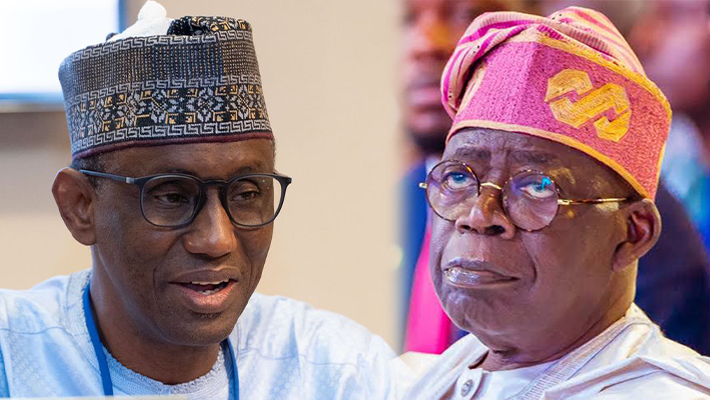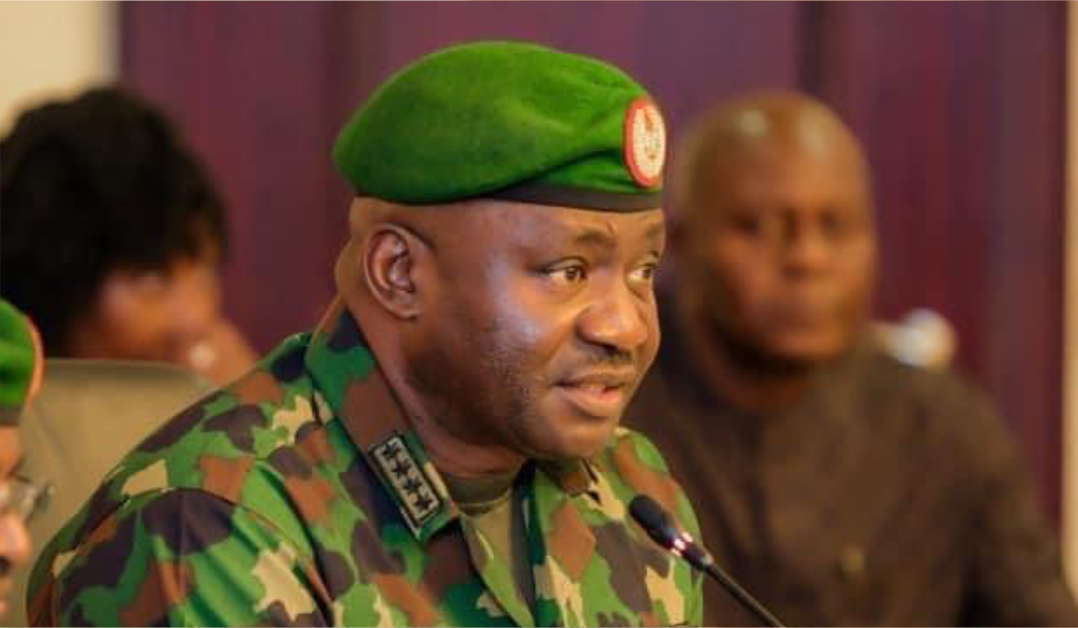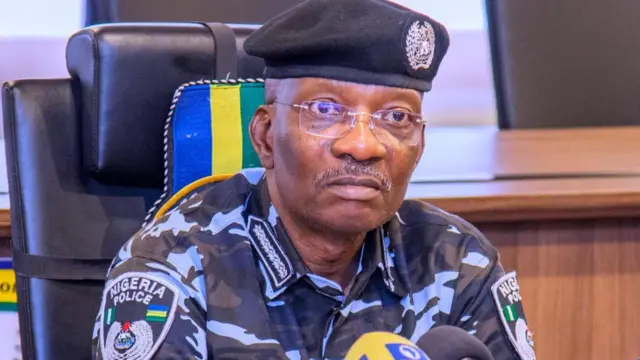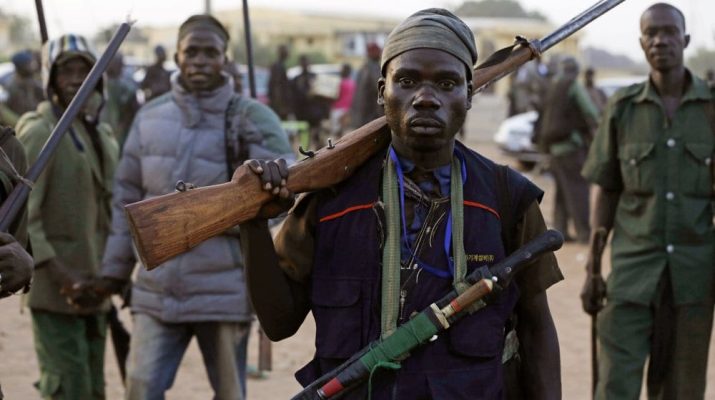Despite Federal Government’s claims to the contrary, the international community and local stakeholders in the nation’s security architecture are united in their claim that criminal elements in the garb of terrorists, bandits, kidnappers and other nonstate actors are killing citizens with reckless abandon
By Our Correspondent
Nigeria’s wobbling journey to the security of its citizens and their properties is lined with thorns and bristles, thus it has remained torturous and a hard nut to crack. Despite pockets of minute successes recorded in different parts of the country by the combined forces of security agencies, it does appear Nigeria is still at a crossroad on how to achieve a lasting victory over insecurity in order to grant the citizens freedom to sleep with their two eyes closed.
According to international and local observers of the rising cases of insecurity, the two years of President Bola Ahmed Tinubu government has witnessed unprecedented massacre of innocent citizens by the criminal elements. These have also warned Tinubu to brace up to the challenges of insecurity and wanton destruction of lives and properties of citizens, or risk surrendering to country to the whims and caprices of terrorists, bandits, kidnappers and armed robbers.
On Thursday, August 28, 2025, the Amnesty International (AI) had come hard on the government for the heightening rate of insecurity in the country. The world body had alerted the people to the effect that within the first two years of Tinubu government, more than 10,217 innocent souls have been wasted by bandits, terrorists’ groups and kidnappers among various other groups of criminals.
The AI stressed that the Nigerian authorities’ shocking failure to protect lives and property from daily attacks by armed groups and bandits has cost thousands of lives and created a potential humanitarian crisis across many northern states.
Its recent investigation showed that in the two years since the current government has been in power, at least 10,217 people have been killed in attacks by gunmen in Benue, Edo, Katsina, Kebbi, Plateau, Sokoto and Zamfara state. AI said Benue state accounted for the highest death toll of 6,896, followed by Plateau state, where 2,630 people were killed.

The international body’s submission read in part, “Today marks exactly two years since President Bola Tinubu assumed office with a promise to enhance security. Instead, things have only gotten worse, as the authorities continue to fail to protect the rights to life, physical integrity, liberty and the security of tens of thousands of people across the country,” said Isa Sanusi, Director Amnesty International Nigeria”.
Sanusi added, “President Tinubu must fulfill his promises to Nigerians and urgently address the resurgence of the nation’s endemic security crisis. The recent escalation of attacks by Boko-Haram and other armed groups shows that the security measures implemented by President Tinubu’s government are simply not working.”
AI also discovered that in the two years since President Tinubu government assumed power, new armed groups have emerged which include Lakurawa in Sokoto and Kebbi state, and Mamuda in Kwara state, while hundreds of villages have been sacked by gunmen in Benue, Borno, Katsina, Sokoto, Plateau and Zamfara.
Going further, the AI said since 29 May 2023 when Tinubu assume office, hundreds of people have been killed in rural areas where its research since 2020 showed a total absence of governance, hence giving the notorious gunmen and criminal groups a free hand to commit atrocities.
“Our investigation verified the killing of over 294 people in Katsina state and documented the abduction of 306 people, mostly women and girls, between May 2023 to May 2025.
“In Zamfara state, attacks have occurred daily, with multiple attacks sometimes taking place in a single day. In the last two years, over 273 people have been killed and 467 people abducted. Since the beginning of the security crisis, bandits have sacked 638 villages across, while 725 villages are under the control of bandits, across 13 local governments of Zamfara state.
“Maru Local Government Area also witnessed escalating attacks, including one on a mining site at Gobirawar Chali on 24 April 2025 in which over 20 miners were killed. The emergence of Lakurawa opened a new frontier of bloodshed in Kebbi State where at least 70 people were killed in 22 attacks”.

The AI further narrated that attacks in Benue and Plateau States were particularly vicious. According to the body, during the April 3, 2025 attack on Bokkos Local Government of Plateau State, many people including children and entire families were brutally killed. In Benue State, the gunmen ensured that after killing people, they also destroyed bore holes, clinics and schools. During the attacks on communities in Ukum and Logo local government, AI said it gathered evidence that grain reserves and places of worship were also destroyed.
Its findings further showed that all the 23 LGAs of Benue State suffered such attacks, with more frequent attacks on Ukum, Logo, Katsina-Ala, Gwer West, Gwer East, Apa and Agatu LGAs. It said over 200 villages have been sacked by gunmen across Benue State. These attacks, AI insisted, have triggered a wave of displacement with 450,000 people documented as Internally Displaced People (IDP).
Investigation by the AI added that in Plateau State, armed herders carried out 38 attacks. Between 27 March and 2 April 2025, coordinated attacks took place against five communities, namely, Daffo, Gwande, Hurti, Manguna, and Ruwi in Bokkos local government. In the past two years, it hinted that 167 rural communities were attacked in Bassa, Barkin Ladi, Bokkos, Jos East, Jos South, Mangu, Riyom and Wase LGAs.
AI stated that due to these attacks, 65,000 people have been internally displaced. Some communities in both Benue and Plateau, have been displaced more than once, after IDP camps were also attacked.
The investigation added that the majority, if not all of those affected by these attacks, were farmers whose displacement meant they could no longer cultivate their farms. This is causing a looming humanitarian crisis. The majority of those displaced in Plateau and Katsina States told AI that they had to resort to begging to survive daily life. At Dangulbi District of Zamfara State, farmers told AI that they watched helplessly as their harvest of sweet potatoes rot because bandits prevented them from transporting them to the nearest market.

“These attacks deprive people of their right to life while the survivors are deprived of their livelihood,” said Sanusi.
Revealing further, the AI said that between 9 and 11 May 2025, the beastly gunmen sacked four villages of Isa LGA in Sokoto State. The affected communities include, Bafarawa, Gebe, Kamarawa, Garin Fadama and Haruwai. People of these villages are still displaced and struggling to feed daily.
Residents of villages in Zamfara, Sokoto and Katsina States, during the investigation, told AI that gunmen also imposed levies on them through phone calls, with stern warning that failure to pay at a given deadline would be punished with death.
On the response of the Nigerian authorities to the plights of displaced families, a resident of Maru LGA in Zamfara State told the AI that, “The only relationship between us and the government is that they issue media statements after we are attacked and killed. That is all they do. When the next attack comes, they will issue another empty statement, while bandits escalate their atrocities. We are helpless.”
“The authorities’ failure to hold suspected perpetrators accountable is fueling a cycle of impunity that is making everyone feel unsafe. Time is running out, as gunmen, bandits and insurgents are ramping up attacks daily. The nationwide bloodshed must end now,” said Sanusi.
The AI has also tasked the Federal Government to urgently investigate the widespread killings, enforced disappearances, and other grave human rights violations in the South east region of Nigeria.
The organisation made the call during a launch of its new report, titled “A Decade of Impunity: Attacks and Unlawful Killings in Southeast Nigeria” on Thursday, September 4, 2025 in Ikeja.
The Director of AI Nigeria, Mr Sanusi, said that the organisation documented widespread violence carried out by both state and non-state actors, including unlawful killings, torture, arbitrary arrests, and attacks by armed groups.
The report noted, “At least 1,844 people were killed between January 2021 and June 2023 alone which left thousands dead and displaced from atrocities committed by both state and non-state actors.
“Gunmen, described locally as ‘unknown gunmen’ have carried out deadly raids across Imo, Anambra, and other states, killing over 400 people in Imo alone between 2019 and 2021.”
Sanusi alleged that security forces and the state-backed Ebubeagu Paramilitary outfit committed serious abuses, including extrajudicial killings, arbitrary arrests, torture, and enforced disappearances.
He said that the report highlighted how insecurity had disrupted daily life in the region, with sit-at-home orders enforced by the Indigenous People of Biafra (IPOB) and its armed wing, the Eastern Security Network (ESN), paralysed schools, markets, and businesses.
He further said that the findings were based on field research and interviews with over 100 people including survivors, victims’ relatives, community leaders, and lawyers between April and November 2023.
“The people paint a picture of communities turned into “ungoverned spaces,” with traditional rulers sacked, residents displaced, and cult groups thriving in the absence of state protection.
“Survivors recounted harrowing attacks in which armed assailants stormed villages, demanded money at public gatherings, and burnt homes of those who resisted.”
According to Sanusi, the Federal Government must launch a transparent, impartial, and effective investigations into the atrocities, restore security, and provide justice and reparations to victims.
“Authorities must urgently conduct fair, open, and unbiased investigations into reported crimes, emphasising Nigeria’s duty under its Constitution and international law to safeguard lives, freedom, and security in the region.
“It must ensure suspected perpetrators are brought to justice in fair trials, no matter who they are, and that victims and their families have access to justice and effective remedies.”
In its observation of the way and manner criminal elements are riding a roughshod on the country despite efforts by the military and security agencies to curb their heinous activities, a group of eminent citizens under the aegis of the “Concerned Nigerian Leaders”, has expressed frustration over the security situation in the country, proposing the urgent creation of a Presidential Task Force on national security, with extraordinary powers and a clear mandate to coordinate and execute emergency measures to halt the violence in the country.
The group’s position was contained in a statement signed by 19 persons from all parts of the country, including former Aviation Minister, Osita Chidoka; governorship candidate of the All Progressives Congress (APC) in Rivers State for the 2023 election, Tonye Patrick Cole, former House of Representatives member, Sergius Ogun, and former Information Minister, Frank Nweke Jr.
Others are former chairman of National Electricity Regulation Commission (NERC), Sam Amadi, Ugo Egbujo, Dr Midala Usman Balami, broadcaster, Kadaria Ahmed and Abdullahi Maibasira, among others.
The statement read, “We propose urgently creating a Presidential Task Force on National Security, with extraordinary powers and a clear mandate to coordinate and execute emergency measures to halt the violence. This Taskforce should work directly with the National Security Adviser (NSA), and all relevant security, intelligence, and humanitarian agencies.
“Its mandate should include operationalizing community-based early warning systems and rapid frameworks response ensuring that intelligence from local actors, traditional leaders, and civil society triggers immediate coordinated action, not bureaucratic delay.
“Implementing a disarmament and reintegration programme for conflict zones, particularly in the North East, North Central and North West, combining humanitarian assistance with strategic security deployment to enable the safe return of displaced populations”.
Quoting AI, the group lamented that in just two years, the country recorded at least 10,217 violent killings.
Drawing similarities with countries in war situations the group stated that, “For perspective, over roughly the same period Ukraine’s war has claimed 10,000-12,000 civilian lives, Gaza’s devastating siege has taken over 35,000 and Syria, still reeling from civil war, now averages 3,000-5,000 deaths annually, Parts of Nigeria are enduring wartime levels of slaughter, yet we are officially at peace. The devastation at home is chilling. Benue State alone has witnessed 6,896 killed, over 450,000 displaced, entire local councils hollowed out by fear.
“Plateau has lost 2,630 lives, its boreholes poisoned, granaries torched, farmers forced to watch harvests rot for fear of ambush on the road to market. Zamfara has seen at least 638 villages sacked, and residents are now paying criminal levies by phone under threat of mass killings. Similar horrors persist in Sokoto, Kebbi, Katsina and Niger, where bandits have turned entire districts into fiefdoms. Meanwhile, Boko-Haram is resurging in the North east, regaining the ability to launch deadly assaults, killing servicemen and even attempting overruns of local governments, as seen in recent attacks on Gwoza, Damboa, Biu and Bama, forcing farmers off their fields and reviving fears of the dark days when the entire country trembled under their shadow.
“The South east, too, is gripped by relentless killings by unknown gunmen making peace increasingly elusive. Why does this nightmare continue? At its heart, our crisis reveals a brutal fact; the Nigerian state has surrendered its monopoly on the legitimate use of force.
“New armed groups flourish – Lakurawa in Sokoto and Kebbi, Mamuda in Kwara, alongside local militias that exploit old grievances. What began as herder and united by one conviction that rises above all differences “Perhaps the most alarming thing is the national silence. The ritual of press condemnations after each massacre, and the swift return to other mundane issues, is now a national pastime. This is not resilience.
“It is the slow implosion of a nation and a rot of its conscience. Lessons from around the world: other countries, torn by even deeper divisions, found the courage to change course”.
On its part, the SB Morgen Intelligence (SBM), a geopolitical research firm, has said no fewer than 762 Nigerians were killed by kidnappers in 4,722 abductions within the last one year in the country.
The research firm, in its latest report titled, “Economics of Nigeria’s Kidnap Industry,’’ also revealed that kidnappers demanded over N48 billion from victims and their families during the same period between June 2024 to June 2025.
The SBMI report said of the total amount of N48 billion demanded as ransom, only N2.57 billion was received.
“Nigeria’s kidnapping crisis has evolved into a lucrative criminal enterprise, with N2.56 billion ($1.66 million) confirmed in ransom payments and 4,722 civilians abducted in just one year.
“The North west remains the most violent, while the South east and South south face targeted religious abductions and financial extortion.
“Unless security forces dismantle these networks and address root causes-poverty, unemployment, and weak law enforcement-the cycle of kidnappings, ransoms, and deaths will continue unchecked, leaving ordinary Nigerians in perpetual fear.’’
Worried by the ever escalating state of insecurity, the Northern Elders Forum (NEF), had on Wednesday, September 3, 2025, called on President Tinubu to declare a state of emergency in the entire Northern regions because of the protracted insecurity that has devastated the socio-economic life and development of the region.
In a communique signed by the Spokesperson of NEF, Prof Abubakar Jiddere, the group expressed deep concern over the spate of violent attacks, abductions and killings across the regions, warning that if a state of emergency was not declared, it might lead to self-help situation and anarchy, and currently it is a threat to Nigeria’s stability and regional peace.
The NEF pointed out that if the Federal Government failed to do the needful, it would jeopardise national cohesion, democratic sustainability, stability of the polity, and regional peace; therefore, the Tinubu-led administration, without delay, should meet their demand of declaring state of emergency in line with the Constitution and international obligations to protect lives and property.
He also recalled that on August 19, there was a bloody attack on a mosque in Unguwan Mantau Village, where armed assailants killed about 27 worshippers and injured many during early morning prayers, while hundreds of people were displaced.
The group also noted the execution of 35 abductees in Zamfara State despite ransom payments, as well as two separate attacks in Kaduna State’s Kauru and Kudan LGAs, which killed eight persons while eight others were injured.
The communique read, “Declaring a State of Emergency in Northern Nigeria, acknowledging the extraordinary scale of the crisis.
“Deploying adequately trained, armed, and equipped security forces with clear rules of engagement to protect civilian populations and secure international border regions.
“Provide adequate compensation, rehabilitation, and humanitarian assistance to victims including displaced persons, in line with international humanitarian standards.
“Strengthening border control and regional cooperation with neighbouring states under ECOWAS and the African Union protocols, to stem cross-border incursions by armed criminal groups.
“Engaging international partners, including the African Union, AU, and United Nations, UN, for technical and humanitarian support.”
Jiddere; He also added that, “The NEF observes with deep regret that the state security architecture remains inadequate, overstretched, and in some cases complicit through inaction and silence, leaving citizens vulnerable and helpless while eroding public trust in government institutions.
“Article 6 of the International Covenant on Civil and Political Rights (ICCPR), states that the inherent right to life shall be protected by law, and no one shall arbitrarily be deprived of life.
“The recurring atrocities in Northern Nigeria constitute serious breaches of these obligations, and in their scale and persistence, will amount to crimes against humanity under international law and humanitarian cases.”
However, in its response, the presidency has insisted that it was fighting hard to reduce the scale of insecurity in the country. It called out on a popular social media influencer, Tunde Ednut, accusing him of spreading false information about the security situation in Nigeria.
The Special Assistant to President Tinubu on Social Media, Dada Olusegun, disagreed with a submission by Ednut that Nigeria was not safe.
The social media influencer had recently taken to his Instagram page to warn Nigerians against night movements, insisting that the country was not safe. He added that claims by politicians that Nigeria was safe were nothing but lies.
But reacting in a post via his X account on Sunday, August 31,2025 the presidential media aide accused Ednut of spreading fake news about the security situation in Nigeria.
Olusegun accused Ednut of posting a video from another country just to support his claim that Nigeria was not safe. The presidency cautioned that such acts were not patriotic but rather reeked of desperation to get clicks and traffic to his social media page.
“Nigeria’s security apparatus is in no way close to perfection but the need to consistently chase clout while leveraging on the gullibility of an audience who rely on your page for information about the happenings around them has reduced Tunde Ednut to a misinformation monster that now needs to be checked.
“How desperate can one be to post a video from South Africa in a bid to prove to his audience that “Nigeria is not safe” when tomorrow, you will still tell the same audience that South Africa is safer than Nigeria?
“Acts like this are in no way close to the patriotism or good governance advocacy that you tend to promote, rather it reeks of desperation and need for clicks using negativity that quickly resonates with the majority of your audience,” the presidency submitted.
While noting that the fight against insecurity is an ongoing effort, the presidency highlighted some of the major achievements already recorded in the security sector, including the arrest of several high-profile terrorist leaders, the degradation of the proscribed Indigenous People of Biafra (IPOB) following the arrest of Simon Ekpa, as well as improved security on the nation’s highway.
“While no one is saying Nigeria is Eldorado as far as insecurity is concerned, we must lay bare the facts here to let Nigerians know that we are better than where we were coming from.
“Hundreds of top bandit leaders have been eliminated over the past two years while thousands of their members have been sent to their creator via the improved coordination between the military forces as now headed by NSA Ribadu.
“The dangerous Abuja-Kaduna highway has become a safer road, and no major insecurity report has been made over the past few months.
“The IPOB menace in the South east still exists but has reduced significantly following the arrest of Commander Simon Ekpa.
“Again, this is not to say all is well but we are not where we used to be and using videos from South Africa to justify your claims of insecurity suggests that you are short of the negative content you so much desire for Nigeria to appease your sponsors,” the presidency added.




